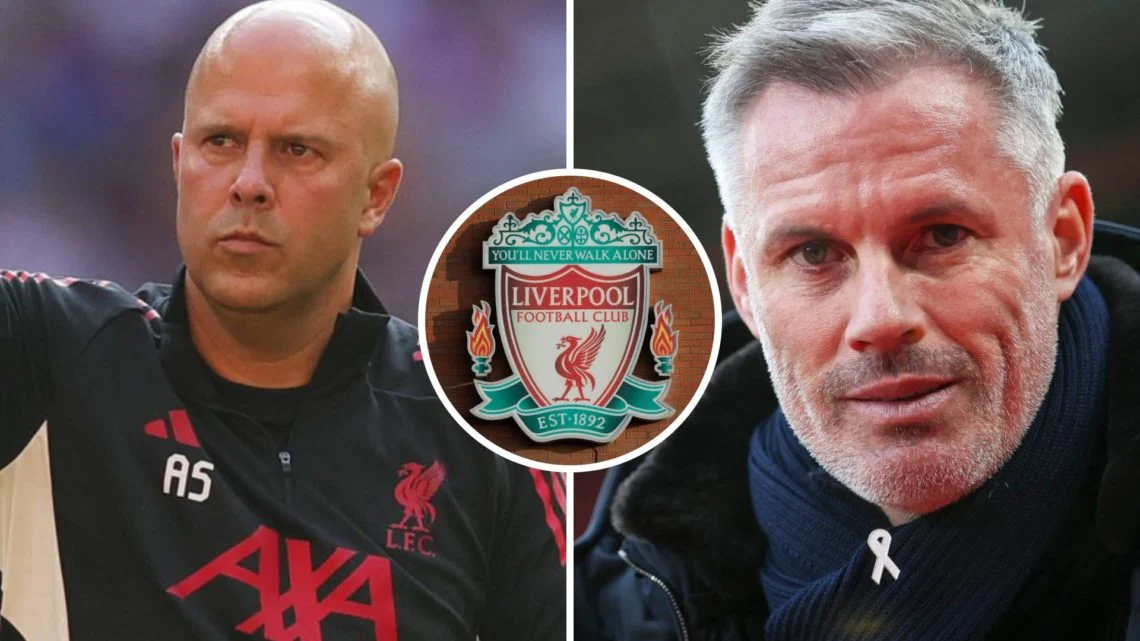Slot’s Complete U-Turn on Federico Chiesa: A Comprehensive Analysis of Liverpool’s Transfer Strategy

The roar that erupted from the Kop on that Friday evening at Anfield was more than just celebration of a goal – it was the sound of a career potentially being resurrected. As Federico Chiesa wheeled away in jubilation after netting a dramatic late winner against Bournemouth, few could have predicted that this single moment would fundamentally alter Liverpool’s transfer plans for the remainder of the window. The Italian winger, who had been widely expected to depart Merseyside before the deadline, suddenly found himself at the center of manager Arne Slot’s thinking once again.
Chiesa’s goal against Bournemouth represented far more than three crucial points in Liverpool’s Premier League campaign. It served as a powerful reminder of the quality that lies within the 27-year-old’s boots – quality that had made him one of Europe’s most coveted attacking talents during his peak years at Juventus. For a player who had become something of a forgotten figure in the corridors of Anfield, this moment of brilliance couldn’t have come at a more opportune time.
The timing of Chiesa’s intervention was particularly significant given Liverpool’s current squad dynamics and the approaching transfer deadline. With the Reds having already parted ways with Luis Diaz and Darwin Nunez during the summer window, and following the tragic loss of Diogo Jota, Slot’s attacking options had become increasingly limited. In this context, Chiesa’s goal served as a timely reminder of his potential value to the squad, prompting what sources describe as a complete reassessment of his future at the club.
To fully understand the significance of Slot’s reported U-turn on Chiesa, it’s essential to examine the broader context of Liverpool’s summer transfer activity. The 2024-25 season has marked a period of significant transition for the Reds, with the club making several high-profile departures while simultaneously seeking to refresh their squad under new management.
The departures of Diaz and Nunez represented a considerable shift in Liverpool’s attacking philosophy. Both players had been integral parts of Jurgen Klopp’s system, and their exits left noticeable gaps in the squad’s offensive capabilities. Diaz, in particular, had been a key figure on the left flank, offering pace, direct running, and creative spark from wide positions. Nunez, despite his inconsistencies, provided a different dimension to Liverpool’s attack with his physical presence and clinical finishing ability.
The tragic loss of Jota further compounded Liverpool’s attacking concerns. The Portuguese forward had been a reliable goal scorer for the Reds, capable of playing across multiple positions in the front line. His absence not only reduced the squad’s numerical strength but also eliminated a player who had developed strong chemistry with Liverpool’s midfield and understood the intricate requirements of Slot’s tactical system.
Against this backdrop of departures, Chiesa’s status at the club had become increasingly precarious. The Italian international had struggled to establish himself as a regular starter since his arrival from Juventus, making just 15 appearances and scoring three goals. His integration into Liverpool’s system had been slower than many had anticipated, leading to speculation about his long-term future at Anfield.
Liverpool’s approach to the current transfer window has been characterized by careful planning and strategic thinking. With Slot having had time to assess his squad during pre-season and the early weeks of the campaign, the Dutch manager has been able to identify specific areas that require reinforcement. The ten-day gap between Liverpool’s victory over Bournemouth and their next Premier League fixture against Newcastle has provided an ideal opportunity for the club to focus on their transfer business without the distraction of immediate competitive fixtures.
This extended break has allowed Slot and the Liverpool hierarchy to conduct thorough evaluations of their current squad while simultaneously pursuing potential new signings. The rumored interest in Alexander Isak demonstrates Liverpool’s ambition to add proven Premier League quality to their attacking ranks, with the Newcastle striker representing exactly the type of clinical finisher that could complement the club’s existing creative talents.
However, the pursuit of new signings must be balanced against the need to maintain squad harmony and provide opportunities for existing players to prove their worth. Chiesa’s situation exemplifies this delicate balancing act – while Liverpool may be keen to add fresh talent, they must also consider whether they’re maximizing the potential of the players already at their disposal.
Federico Chiesa’s career trajectory has been one of remarkable highs and challenging lows. His emergence at Fiorentina marked him as one of Italy’s most promising young talents, with his pace, technical ability, and eye for goal making him a standout performer in Serie A. Across 153 appearances for La Viola, Chiesa scored 34 goals and provided 19 assists, establishing himself as one of the most exciting wingers in European football.
His subsequent move to Juventus represented a significant step up in his career, joining one of Italy’s most successful clubs at a time when they were looking to refresh their squad. During his time in Turin, Chiesa continued to develop his game, making 131 appearances and contributing 32 goals and 20 assists. His performances for both club and country, particularly during Italy’s successful European Championship campaign, further enhanced his reputation as a player capable of performing on the biggest stages.
The transition to Liverpool, however, has proven more challenging than many anticipated. The Premier League’s unique demands, combined with the specific tactical requirements of Slot’s system, have made Chiesa’s adaptation process more complex. His 15 appearances for Liverpool have yielded three goals and one assist – numbers that, while not entirely disappointing, fall short of the impact many expected from a player of his caliber.
Giorgio Chiellini’s description of Chiesa as “unstoppable” during his peak years serves as a reminder of the player’s potential. The former Juventus captain’s assessment wasn’t made lightly – Chiellini had witnessed firsthand Chiesa’s ability to change games through moments of individual brilliance, his capacity to create something from nothing, and his relentless work rate both with and without the ball.
Chiesa’s late winner against Bournemouth was significant not just for its timing but for the manner in which it was scored. The goal showcased many of the qualities that had made him such a sought-after player during his time in Serie A – intelligent movement, clinical finishing, and the ability to rise to the occasion when his team needed him most.
From a tactical perspective, the goal demonstrated Chiesa’s understanding of Slot’s system and his ability to find space in the final third. His positioning and movement in the build-up to the goal suggested a player who had been studying the manager’s instructions and was beginning to internalize the complex patterns of play that define Liverpool’s attacking approach.
The celebration that followed was equally telling. Chiesa’s evident joy and relief spoke to the pressure he had been feeling and his determination to succeed at Anfield. For a player who had been facing an uncertain future, the goal represented not just a moment of personal vindication but a potential turning point in his Liverpool career.
Arne Slot’s reported change of heart regarding Chiesa can be understood within the context of his tactical philosophy and the specific requirements of his system. The Dutch manager’s approach to the game emphasizes technical quality, tactical intelligence, and the ability to maintain possession under pressure – all attributes that Chiesa possesses in abundance when at his best.
Slot’s system typically requires wingers who can operate both in wide positions and in more central areas, providing tactical flexibility and creating numerical advantages in different phases of play. Chiesa’s versatility and his experience playing in various positions across the front line make him an attractive option for a manager who values tactical adaptability.
Furthermore, Slot’s emphasis on high-intensity pressing and quick transitions suits Chiesa’s natural game. The Italian’s pace and work rate make him well-suited to the demands of modern football, where wingers are expected to contribute significantly to both attacking and defensive phases of play.
The manager’s decision to reportedly block Chiesa’s exit also reflects his understanding of squad dynamics and the importance of maintaining depth across all positions. With Liverpool facing a demanding fixture schedule across multiple competitions, having players of Chiesa’s quality available becomes increasingly valuable as the season progresses
The reported interest from Inter Milan and Napoli in Chiesa’s services highlights his continued appeal within Italian football circles. Both clubs represent significant opportunities for the winger – Inter Milan’s status as reigning Serie A champions and their European ambitions would provide Chiesa with the chance to compete at the highest level, while Napoli’s recent resurgence under various managers has made them an attractive destination for top-tier talent.
Chiesa’s absence from Liverpool’s pre-season tour of Asia had initially fueled speculation about his future, with many interpreting his non-participation as a sign that the club was actively seeking to move him on. However, Liverpool’s insistence that his absence was purely fitness-related suggests that the club had always maintained hope that he could become a valuable contributor to their plans.
The interest from Serie A clubs also reflects Chiesa’s standing within Italian football. Despite his struggles at Liverpool, his reputation in his homeland remains largely intact, with many viewing his difficulties as a temporary adjustment period rather than a fundamental decline in his abilities.
Liverpool’s decision to retain Chiesa also has significant financial implications that extend beyond the immediate transfer window. The club’s investment in the Italian winger represents a substantial financial commitment, and allowing him to leave without fully exploring his potential would represent poor value for money.
From a squad-building perspective, retaining Chiesa provides Liverpool with several advantages. His experience at the highest level of European football brings valuable knowledge to a squad that includes several younger players still developing their understanding of elite-level competition. His technical ability and tactical intelligence also provide Slot with additional options when facing different types of opposition.
The potential arrival of Alexander Isak, while exciting, would require significant financial outlay. In this context, maximizing the value derived from existing squad members becomes even more important. Chiesa’s retention allows Liverpool to strengthen their squad without necessarily requiring additional expenditure in the attacking areas of the pitch.
Loong ahead, Chiesa’s successful integration into Slot’s system will depend on several factors. The manager’s ability to identify the optimal role for the Italian within his tactical framework will be crucial, as will Chiesa’s willingness to adapt his game to meet the specific demands of the Premier League and Liverpool’s style of play.
The extended break between fixtures provides an ideal opportunity for Slot to work closely with Chiesa on the training ground, refining his understanding of positional requirements and developing the understanding with his teammates that is essential for success in such a technical and demanding system.
Chiesa’s versatility could prove particularly valuable as the season progresses and Liverpool face fixture congestion across multiple competitions. His ability to play on either flank, as well as in more central positions, provides Slot with tactical flexibility that could prove decisive in key moments throughout the campaign
Liverpool’s decision regarding Chiesa must also be viewed within the context of their broader transfer strategy. The club’s approach to squad building under Slot appears to emphasize the development of existing talent alongside selective additions of proven quality. This philosophy aligns with Liverpool’s historical approach to transfers, which has typically favored long-term thinking over short-term fixes.
The rumored pursuit of Isak suggests that Liverpool are still active in the transfer market and willing to make significant investments when they identify the right targets. However, the decision to retain Chiesa indicates that the club is also committed to maximizing the potential of their current squad members.
This balanced approach to squad management reflects the complex realities of modern football, where clubs must navigate financial constraints while maintaining competitive squads across multiple competitions. Liverpool’s strategy appears designed to provide Slot with maximum flexibility while ensuring that the club’s financial resources are deployed efficiently.
Liverpool’s upcoming fixture against Newcastle United will provide an important early test of Slot’s squad management decisions. The match will offer Chiesa another opportunity to demonstrate his value to the team, while also providing insight into how Slot plans to utilize his attacking options throughout the season.
Newcastle’s quality and their familiarity with the Premier League’s demands will provide a stern examination of Liverpool’s tactical approach and squad depth. The outcome of this fixture could have significant implications for how the remainder of the transfer window unfolds, particularly if Chiesa plays a prominent role in the team’s performance.
Arne Slot’s reported U-turn on Federico Chiesa represents more than just a change in transfer strategy – it reflects a manager’s willingness to reassess his options and provide players with opportunities to prove their worth. Chiesa’s goal against Bournemouth served as a timely reminder of his quality, but it will take sustained performances and continued development to fully justify Slot’s faith in his abilities.
The Italian winger’s journey at Liverpool has been characterized by challenges and setbacks, but his retention for the remainder of the transfer window provides him with a genuine opportunity to establish himself as a key contributor to the team’s success. With Liverpool facing a demanding schedule across multiple competitions, Chiesa’s experience and quality could prove invaluable as the season progresses.
For Slot, the decision to keep Chiesa reflects his understanding of squad dynamics and the importance of providing players with the time and support necessary to reach their potential. The Dutch manager’s tactical philosophy appears well-suited to Chiesa’s strengths, and their continued collaboration could yield significant benefits for both player and club.
As Liverpool prepare for their upcoming fixture against Newcastle and the remainder of what promises to be an exciting transfer window, Chiesa’s future at Anfield appears more secure than it has for some time. His dramatic late winner against Bournemouth may well be remembered as the moment that saved his Liverpool career and provided him with the platform to fulfill his considerable potential in English football.
The coming weeks will provide crucial insight into whether Slot’s faith in Chiesa proves justified, but for now, the Italian winger can focus on his football secure in the knowledge that his immediate future lies at Anfield. In a sport where second chances are rare and precious, Chiesa has been granted exactly that – the opportunity to write a new chapter in his Liverpool story and demonstrate why he was once considered one of Europe’s most exciting attacking talents.















